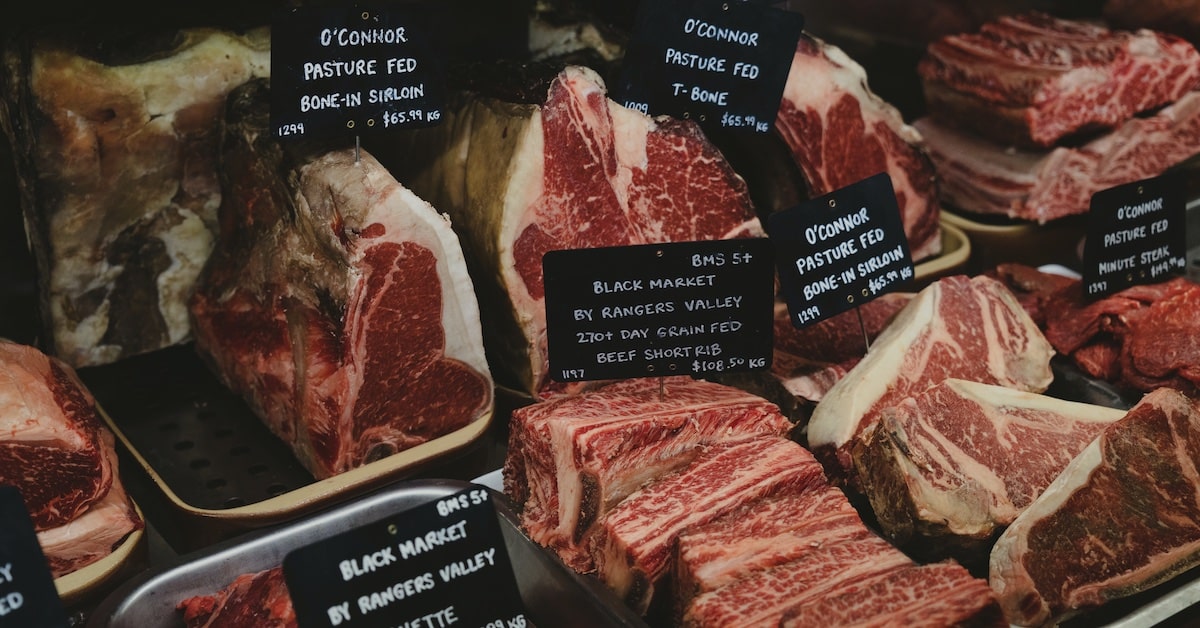Why Shopping at a Farmers Market Supports Regional Farmers and Your Area
Buying at a farmers market serves as a substantial means of supporting local farmers while concurrently boosting the financial textile of your area. Consider the impact this has on local economic climates and food systems.
Economic Advantages of Farmers Markets

Farmers markets dramatically add to regional economic climates by promoting direct sales in between producers and consumers. This straight purchase model removes middlemans, enabling farmers to keep a bigger share of the revenues. Consequently, this boosted earnings encourages neighborhood farmers to reinvest in their operations, purchase far better tools, and improve farming techniques. Such reinvestment not just improves productivity but additionally sustains local farming jobs.
Additionally, farmers markets boost financial task within the bordering community. By drawing in consumers that may also buy from nearby companies, these markets assist to produce a lively local environment. The increase of shoppers motivates foot traffic, which profits cafes, stores, and restaurants, inevitably leading to a multiplier impact that reinforces the total economic climate.
This diversification of neighborhood offerings can enhance area identification and satisfaction. Generally, the financial advantages of farmers markets prolong much past straight sales, promoting a resistant and durable regional economic situation.
Freshness and Quality of Create
The unrivaled quality and top quality of produce found at farmers markets are essential factors that draw in consumers seeking healthy and balanced and delicious choices. Unlike grocery store offerings, which typically undergo lengthy transport times and storage periods, the fruits, veggies, and other items available at farmers markets are normally gathered simply days or perhaps hours before being offered. This immediacy makes sure that the nutrients, flavor, and appearance are protected, giving an exceptional cooking experience.
Moreover, farmers markets often include seasonal produce, permitting customers to delight in fruits and veggies at the peak of their ripeness. Local farmers take satisfaction in their expanding methods, typically using sustainable approaches that boost the top quality of their produce.
The straight connection between the farmer and the consumer at these markets fosters openness concerning farming techniques, additionally assuring customers of the top quality of their acquisitions. Therefore, consumers can with confidence support their health and wellness while appreciating the abundant tastes that originate from local, freshly harvested fruit and vegetables.
Building Area Relationships
Area connections flourish at farmers markets, where neighborhood manufacturers and customers involve in purposeful interactions. farmers market edwardsville il. These markets work as dynamic area centers, cultivating connections that extend past simple purchases. Consumers have the distinct opportunity to meet the very farmers that expand their food, promoting a much deeper recognition for farming techniques and the challenges faced by local producers
This straight engagement builds trust and loyalty, enabling consumers to support the extremely individuals find more who add to their community's economy and vitality. These interactions frequently lead to the sharing of knowledge concerning seasonal fruit and vegetables, food preparation tips, and lasting practices, enriching the neighborhood's cumulative understanding of food systems.
In enhancement, farmers markets create a feeling of belonging, as individuals from diverse histories come together to celebrate local culture and shared values. Inevitably, shopping at farmers markets is not simply about buying food; it is about nurturing neighborhood bonds that contribute to a thriving and resistant regional community.
Promoting Sustainable Practices
At farmers markets, sustainable practices are not just encouraged but proactively advertised, producing a platform for eco mindful usage. These markets typically include regional farmers who use natural farming methods, which dramatically decrease the reliance on synthetic chemicals and plant foods. By prioritizing natural growing, they add to healthier ecological communities and promote dirt wellness, guaranteeing that the land can sustain farming practices for future generations.
In addition, numerous farmers at these markets accept sustainable practices such as crop rotation and permaculture techniques, which improve biodiversity and lower soil disintegration. The emphasis on seasonal fruit and vegetables also lessens the carbon footprint connected with transporting food over long ranges, cultivating a more lasting food system.

Supporting Neighborhood Food Systems

Supporting local food systems also reduces the carbon footprint associated with transferring food over cross countries. When consumers buy directly from local farmers, they minimize the need for considerable supply chains, thus conserving energy and sources. In addition, farmers markets often urge lasting farming methods, as regional manufacturers are most likely to focus on eco-friendly methods to appeal to their area.
In addition, by spending in local food systems, consumers add to the durability of their communities. A durable regional food network can stand up to external stress and economic fluctuations, making certain a steady food supply. Ultimately, purchasing at farmers markets More Bonuses not only sustains regional farmers yet likewise enhances the total health and wellness and sustainability of the community's food ecological community.
Final Thought
Shopping at farmers markets plays an essential role in sustaining regional farmers and boosting community durability. By prioritizing regional produce, these markets contribute to financial stability, advertise sustainable farming practices, and foster social links amongst neighborhood participants. The direct connection in between consumers and local manufacturers not only guarantees accessibility to fresh, premium food but likewise reinforces local food systems. Inevitably, engagement with farmers markets cultivates a vivid, interconnected community that values economic and ecological sustainability.
Buying at a farmers market offers as a substantial methods of sustaining local farmers while at the same time reinforcing the financial textile of your area. By focusing on neighborhood sourcing, farmers markets help maintain regional agricultural diversity and promote the consumption of seasonal produce, which in turn strengthens local economies.
Eventually, buying at farmers markets not only sustains local farmers however also improves the general wellness and sustainability of the neighborhood's food community. (farmers market edwardsville il)
Buying at farmers markets plays a crucial duty in sustaining neighborhood farmers and enhancing neighborhood strength. The direct connection in between consumers and local producers not just makes certain accessibility to fresh, high-grade food yet likewise enhances local food systems.